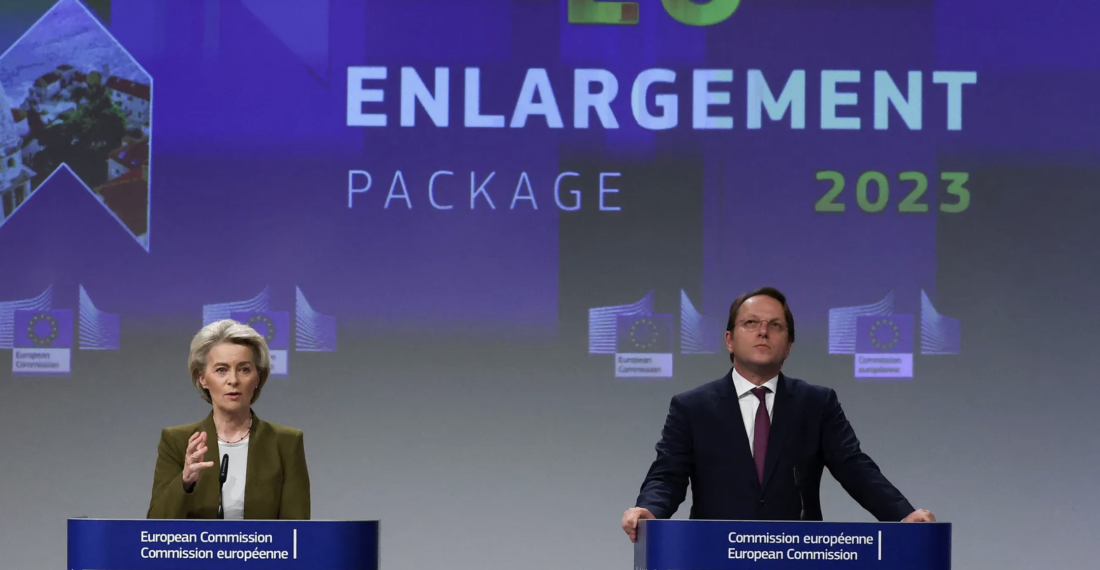The European Commission has taken a step towards the enlargement of the European Union by recommending the opening of formal EU membership talks with Ukraine and Moldova. The Commission's endorsement is significant as it could lead to Ukraine, currently in conflict with Russia, joining the EU. However, both Ukraine and Moldova will be required to accelerate their internal reforms to meet EU standards.
The EU had previously recognised Ukraine as a potential candidate, and this latest development is a continuation of that process. Moldova is on a similar path. The recommendations are part of the EU's routine assessment of potential new members to ensure they are in line with EU rules and values. The final decision on this matter will be taken by EU leaders at a summit in Brussels in December.
In the wider context of the enlargement strategy, the Commission has also suggested that Georgia could be granted candidate status if it implements certain reforms.
The commission statement says:
Georgia has taken steps to strengthen engagement with the EU and increased pace of reforms in the recent months. To address the twelve priorities identified in the Commission Opinion on its membership application, Georgia has adopted legislative acts and policy actions on gender equality, on fighting violence against women and organised crime, as well as on taking into account European Court of Human Rights judgments. A judicial reform has been brought forward although a holistic reform of the High Council of Justice is still needed. Georgia has shared laws as well as its action plan for deoligarchisation with the Venice Commission for an opinion. A strategy on the protection of human rights was adopted and an action plan is being elaborated. A memorandum of cooperation with civil society representatives was concluded. Building a strong cross-party political consensus would contribute to addressing polarisation and accelerate its European path.
The Commission has also proposed steps for six Western Balkan countries that want to join the EU, with Bosnia and Herzegovina mentioned as a potential candidate for negotiations "once the necessary degree of compliance with the membership criteria is achieved".






